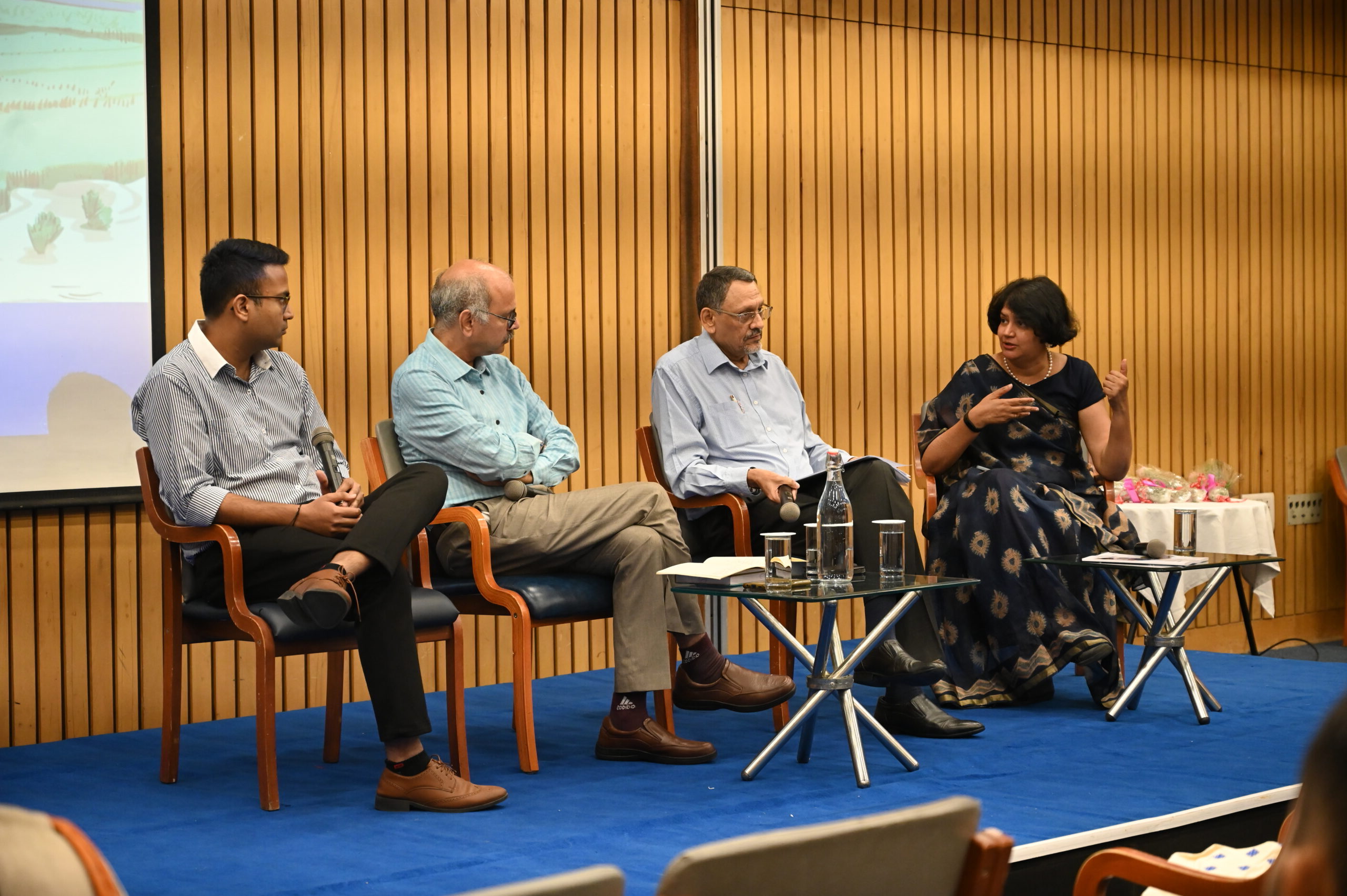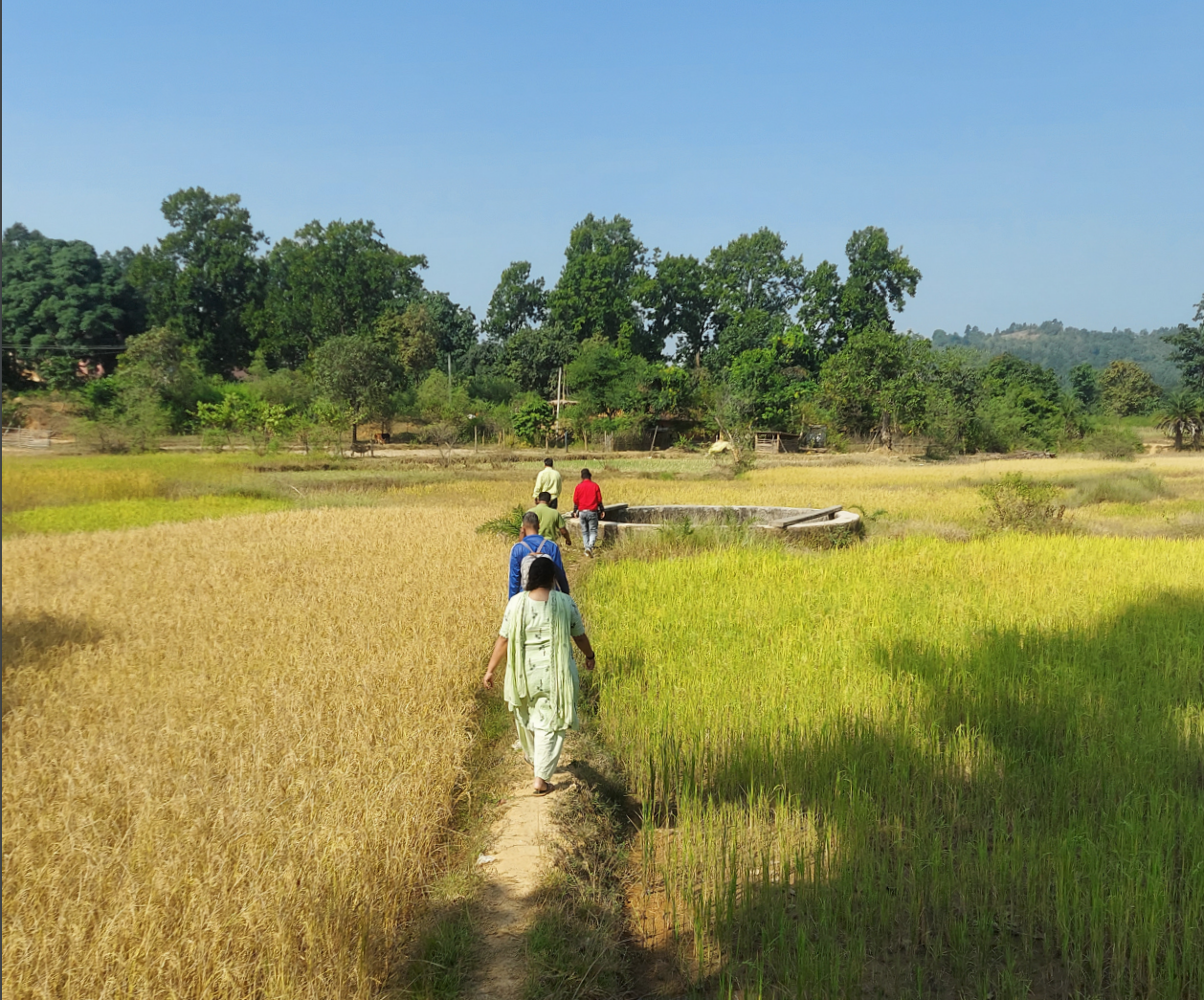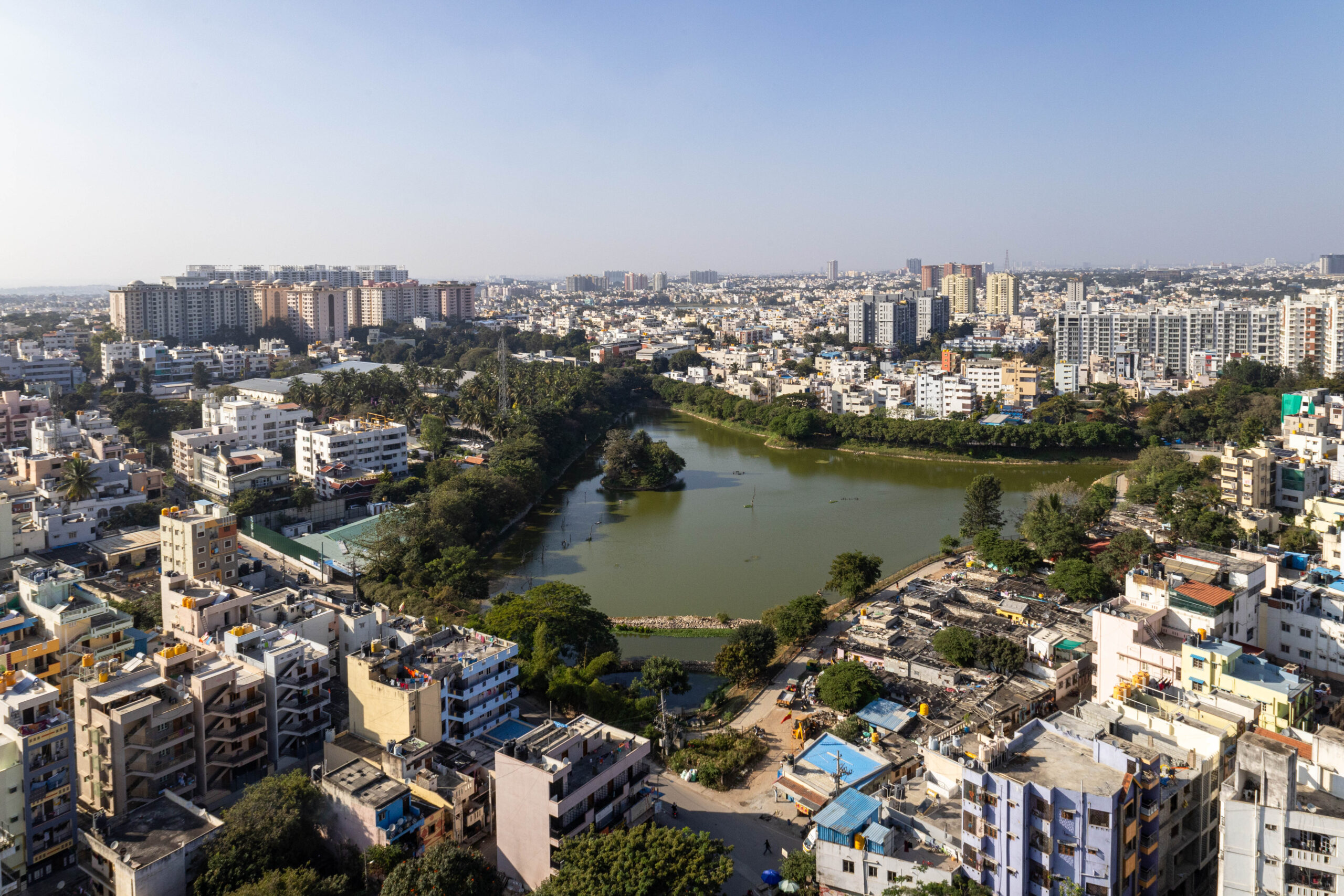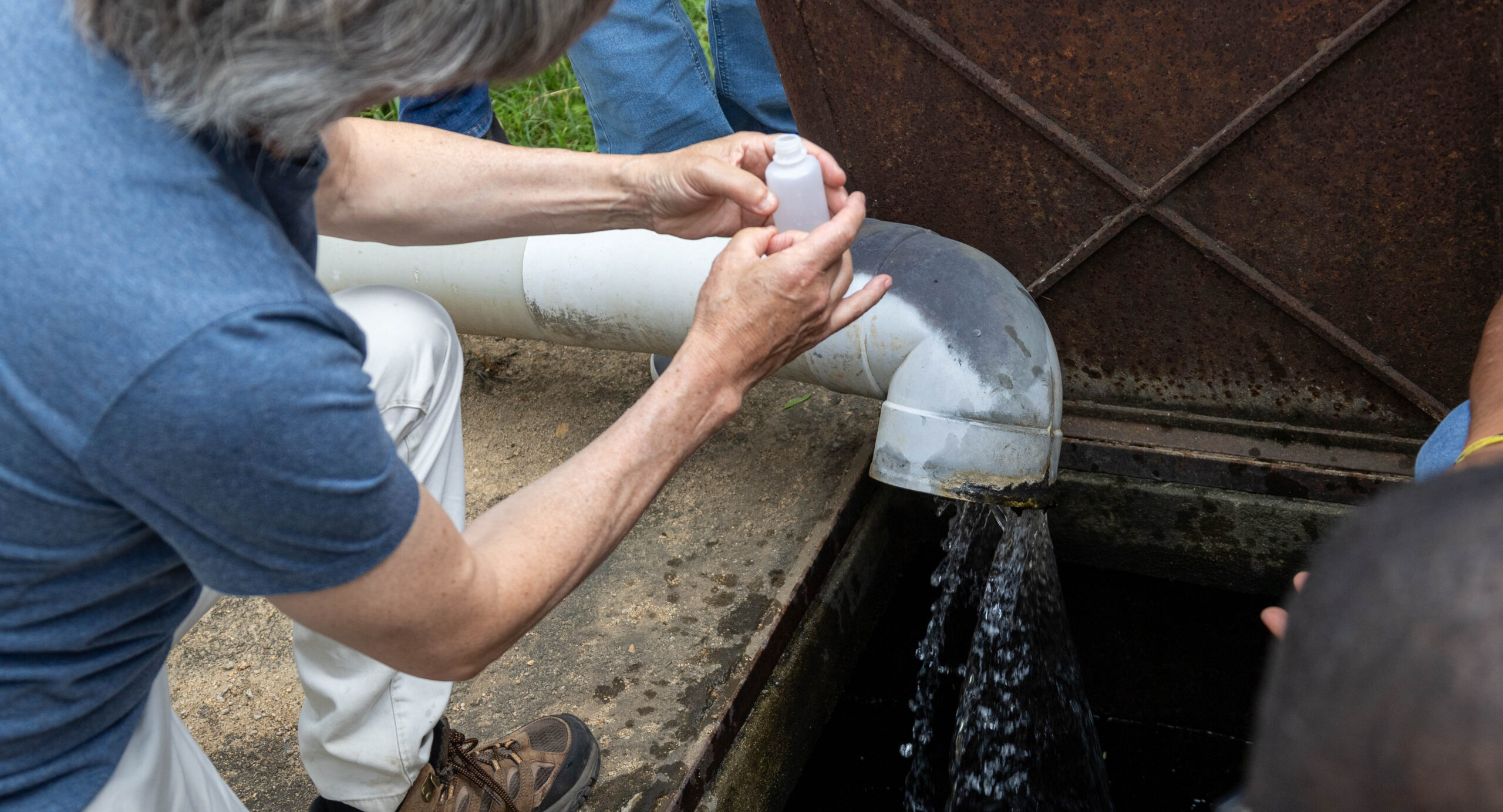Reflections on WELL Labs’ Journey: Year in Review and the Path Ahead
This blog is excerpted from WELL Labs’ Annual Report 2023-2024.
You can read the Annual Report here.
A year ago, we started WELL Labs, a pioneering water systems research and innovation lab. We decided to not just study issues at the intersection of water, environment, land, and livelihoods, but actively intervene to transform them at scale.
As we turn a year old, I would like to share some reflections on our journey and where we are headed.
Why We Started WELL Labs
How do we solve environmental and social challenges at a large scale? We identified four challenges the social impact sector needs to address.
1. Most researchers use a ‘push’ approach.
They disseminate research once it is published. While this is important, change often occurs through ‘pull’, that is, when research responds to requests from practitioners and policymakers. It is also important to synthesise and communicate the findings to a broad audience.
2. Research is retrospective, while problem-solving is prospective.
While research looks at past events to understand how actors and systems behaved, problem-solving requires understanding the barriers to change, prototyping and testing solutions, and impact evaluation.
3. Real-world problems are complex; reductionist, siloed approaches are insufficient.
Water and land issues are interconnected and multifaceted, with no simple solution. Solving them entails a holistic ‘systems’ approach. Thus, a single organisation cannot solve grand challenges alone — a collaborative approach is crucial.
4. The future is likely to present different challenges and opportunities.
Most research and innovation is framed to address the problems of today. But often, by the time the research is done, circumstances change and the proposed solutions are no longer relevant. We need to understand how the future will unfold and how we can intervene to ‘design’ the future we desire.
What WELL Labs is Doing Differently
We asked ourselves: what kind of work culture and technical capacities would help drive social impact at scale? We realised we need generalists and specialists, researchers and practitioners, and people who can solve problems in specific contexts while asking what it would take to change systems as a whole.
Thus, we created an organisation that celebrates and rewards diverse skills. Today, we have researchers with PhDs from top universities, data scientists, impact evaluation specialists, tech experts, urban planners, hydrologists, and design thinkers.
We are also committed ecosystem-builders. Through our projects, we foster collaboration between diverse organisations and individuals and leverage the power of communities for amplified impact.
We like to think of WELL Labs as a ‘porous-borders’ organisation. We have people from other organisations sitting in our office and vice versa. Most of our grants involve multiple partners, with shared credit.
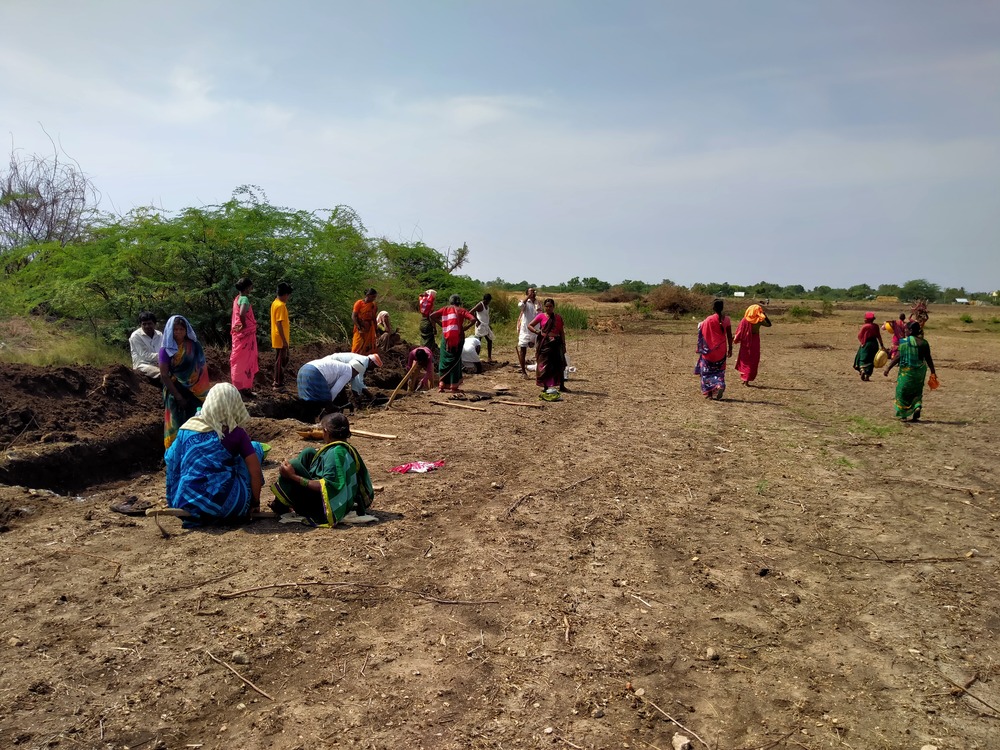
We work with grassroots organisations, governments, nonprofits and the private sector to drive impact.
What We Are Proud of
We are thrilled that we had the opportunity to work with the Government of Karnataka, Bangalore Apartments’ Federation, and Swiss Federal Institute of Aquatic Science and Technology (Eawag). This collaboration provided the knowledge base for a recent government directive allowing apartments in Bengaluru to sell 50% of their treated wastewater for non-potable purposes — a significant step to address the city’s worsening water crisis.
We are also excited about our work on protective irrigation in collaboration with Prarambha in Raichur, where farmers are signalling their willingness to diversify the crops they grow. This will help improve climate resilience and water productivity.
We are proud that the blogs and reports we put out were widely cited in policy and practice circles. We are also delighted by the inbound interest we have been receiving from government agencies across India, who want to work with us as their knowledge partners.
Our Learnings
At WELL Labs, we seek to learn from our partners’ work and share insights so that they can benefit from our experiences. While this report captures our learnings from different initiatives, I would also like to share a few high-level insights:
1. We need to communicate research simply and in different formats.
The social sector is rich with data and knowledge, but these are often not documented. One of the services we can provide to ecosystem partners is documenting and disseminating insights in accessible formats.
2. We need a seat at the table to capitalise on opportunities and policy windows as they arise.
While research organisations, nonprofits, and think tanks often have different approaches and end goals, we work with all of them to translate scientific evidence to social impact. We also need a seat at the table with policy entrepreneurs to ensure that we can address pressing issues in a timely, evidence-based manner.
3. To remain mission-focused and proactive, a third of our budget must come from unrestricted funding.
We cannot control the timing of policy windows. Research reports need to be ready and the evidence must be synthesised before a crisis hits. This means making investments when donors are not paying attention. While project grants are an important part of our work, we shall continue marshalling and devoting resources towards initiatives that nimbly respond to India’s evolving land and water sustainability challenges.
The Way Forward
As we complete our first year, we look forward to scaling our current projects, while exploring new frontiers. We are excited about collaborating with the Environmental Defense Fund to create a Monitoring, Evaluation and Learning Toolbox for the sector. With the Hindustan Unilever Foundation, we are developing simple, science-based indicators to accurately measure the state of water security and the impact of water management interventions.
We are also thrilled to be part of the Sustainable Transition Explorations in Water and Agriculture for Resilient Dryland Systems (STEWARDS). Under the programme, we are establishing two ‘Transformation Labs’ in the semi-arid Chikkaballapur and Raichur districts. These are collaborative spaces where communities co-develop and test sustainable, equitable solutions to the water and land challenges they face.
Over the coming year, we look forward to more impactful initiatives and enriching collaborations. We hope you will join us on this journey.
These reflections are excerpted from WELL Labs’ Annual Report 2023-2024.
You can read the Annual Report here.
Published by Anika Choudhary
If you would like to collaborate, write to us. We would love to hear from you.
Follow us to stay updated about our work.

